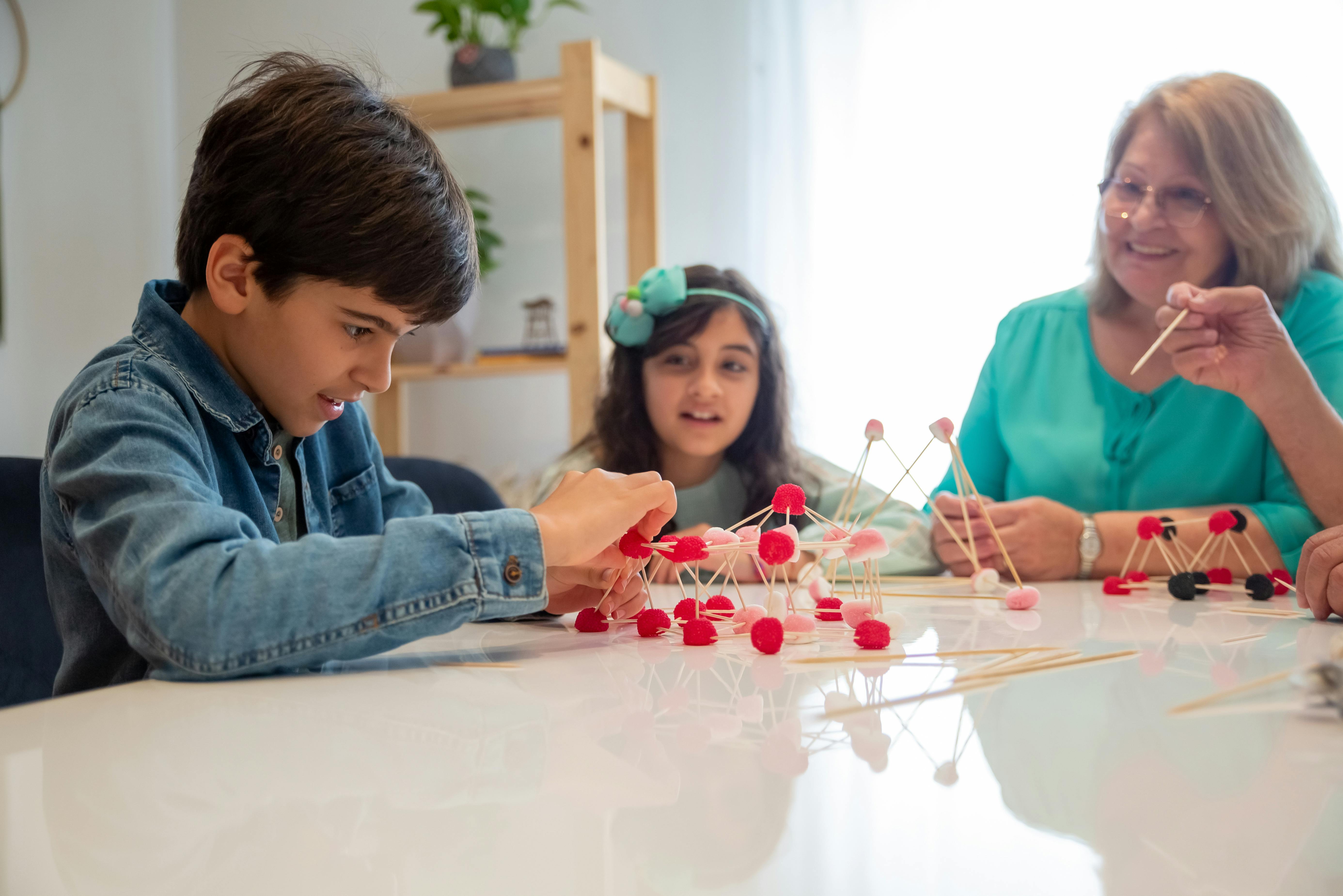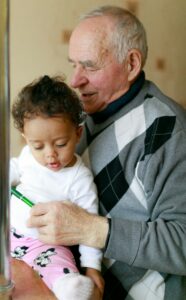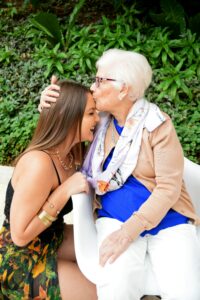Blog
Addressing ageism through IG practice: one programme at a time

For the past 10 years, Associate Professor Katrina Radford from Griffith University, Australia has been researching intergenerational practice in a non-familial environment. As part of this work, she has been promoting the concept of Grandfriends also as a way of addressing ageism. Read on to find out more about her work.
My main passion is preparing, engaging and retaining a qualified social care workforce, many of whom are involved in intergenerational practice. Part of this work involves engaging in research that reduces ageism – whether that be within a work environment more generally or through intergenerational initiatives.
Intergenerational activities, by their nature, have the power to reduce ageism as they increase communication, empathy and understanding between generations. However, we can also improve the chances of reducing ageism by designing activities that foster these connections further. By definition, ageism refers to how we think (stereotypes), how we feel (prejudices) and how we active (discrimination) towards others based on their age (WHO, 2021); and it can manifest across different levels – whether that be institutional, interpersonal or self-directed.
 The intergenerational trials that I have been involved with over the last 10 years have involved children in early childhood, secondary school students and their teachers, as well as older adults who functioned as ‘grandfriends’. A ‘grandfriend’ is defined as a person from an older generation who is not related to the younger person. These are often a member of the public who have a keen interest in volunteering their knowledge, skills and abilities with the younger populations. An unexpected finding for me was the extent of self-directed ageism in both older and younger participants that these programmes revealed. The programmes also allowed staff to reflect on their own ageist stereotypes.
The intergenerational trials that I have been involved with over the last 10 years have involved children in early childhood, secondary school students and their teachers, as well as older adults who functioned as ‘grandfriends’. A ‘grandfriend’ is defined as a person from an older generation who is not related to the younger person. These are often a member of the public who have a keen interest in volunteering their knowledge, skills and abilities with the younger populations. An unexpected finding for me was the extent of self-directed ageism in both older and younger participants that these programmes revealed. The programmes also allowed staff to reflect on their own ageist stereotypes.
For example, one older participant reported the following after reflecting on her feelings toward the programme.
“I don’t know whether what I’ve got to give is what you’re really wanting. I don’t know if I’ve got enough interesting things I suppose. I mean, I’ll have to think about it.” (Female, 84 years old)
Another staff member reported: I have been watching “Betty” over the past week to find her sense of belonging. She waits for a child to approach her and engage but usually doesn’t happen.” (Staff participant – DACS project, individual diary for week 6)
Later, in a follow-up interview, that client explained she felt like she had lost her ability to get down to the child’s level.
Similarly, these fears were also felt in the adolescent participants, who expressed the following fears:
“Well at first, I was almost like, oh, I’m not sure, maybe this guy won’t like me or something. But then after a while, I got to know (the older participant).” (Male, aged 14)
“For me, probably the first impression that I gave to “Harry”, because I didn’t want to appear as a troublemaker or anything. I kind of wanted to appear as someone that’s able to talk to and get to know me” (Male, aged 15)
Interestingly, our programmes have also made ageism more explicit for early childcare educators who reflected that:
“I found that I probably didn’t really think much about the seniors (prior to the programme).” (Child educator, 35 years)
Whereas another reflected that:
“I’m surprised at how keen the seniors were to actually be involved and to the level of involvement that they were” (Childcare educator, 27 years)
 On completing the programme, these participants were able to reflect on these moments and move forward being more aware of their own ageism stances even with the population they work with the most – young children. For example, one childcare educator reflected at the end of the program:
On completing the programme, these participants were able to reflect on these moments and move forward being more aware of their own ageism stances even with the population they work with the most – young children. For example, one childcare educator reflected at the end of the program:
“I guess the one thing that I took away from it the most was definitely how we interact and engage with the children. I found myself having to really be mindful of, okay, they’re very capable and you can step back.”
Combined these findings provide great evidence to emphasize the enormous good we are all doing in championing intergenerational practice and grandfriends. I am immensely proud and humbled by the difference it makes to all involved and I am very excited to continue researching these practices to make the world a better place.
**Names of participants changed to protect confidentiality.
References: WHO (2021). Global Report on Ageism. https://apo.org.au/node/311614
Author: Associate Professor Katrina Radford, Griffith University, Australia. Contact: k.radford@griffith.edu.au